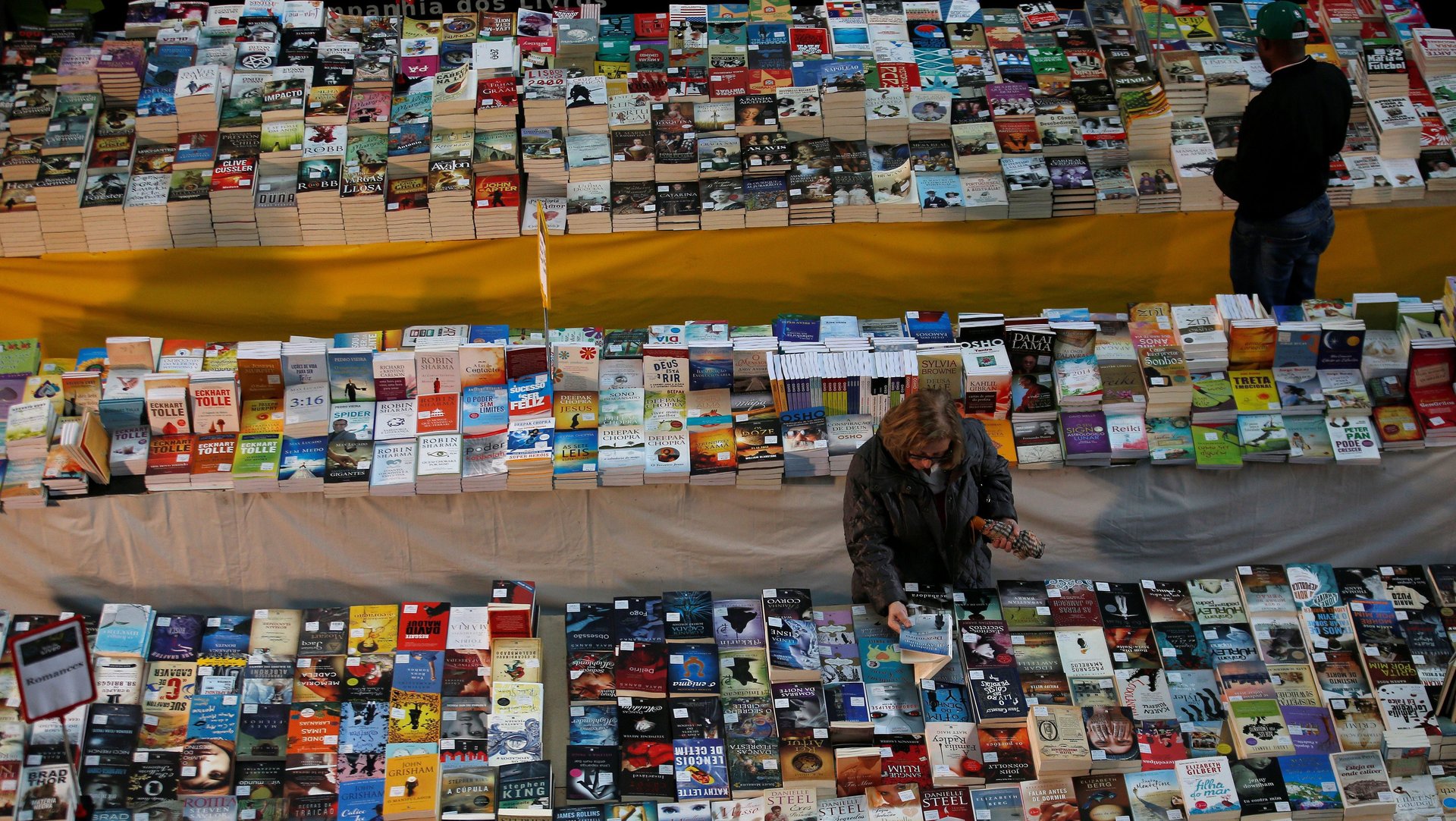Don’t just read more books next year—read the books you actively avoid
If you read for pleasure, it makes sense if you stick to your comfort zones. You’re spending your own time and money, so why not read exactly what you like, whether that’s World War II tomes, true-crime histories, or supernatural YA?


If you read for pleasure, it makes sense if you stick to your comfort zones. You’re spending your own time and money, so why not read exactly what you like, whether that’s World War II tomes, true-crime histories, or supernatural YA?
But a bookish bubble is pernicious. The danger isn’t as overt as with the social media algorithms set up to reinforce your political beliefs with the same forceful opining over and over. But by exposing yourself only to the same set of countries, languages, and periods in history, and to characters with the same identities, backgrounds, and values, you lose out on a chance to build empathy with different groups of people, and to absorb different views of history.
It’s worth reading a political diatribe by someone you disagree with, or memoirs by people you don’t take seriously. It can be fun to hate-read cult classics. It’s important to read books about the American Vietnam War by actual Vietnamese people, particularly if you’re only familiar with the US’s political narrative. And it can be strangely edifying to read books by authors who are criticized as misogynists, if only to understand what their fans find so appealing about their viewpoints.
Here are a few practical ways that you can pop your literary bubble in 2018.
Go to a random section of the bookstore
Do you beeline for literary fiction? Head straight to mystery? Ignore everything but history? Next time you’re in a bookstore, pick a random section or floor, and scrutinize the shelves you usually avoid.
Force yourself to eye-roll your way through self-help. Get dizzy at the sheer number of US presidential biographies you haven’t been reading. Pick up a romance book with a cover that embarrasses you. Maybe you think literary fiction is too “hard”; get right in there with some contemporary novels translated from German, Spanish, or Japanese. Ask a bookseller if you need help.
Take inventory of your bookshelf
You can also take a more proactive approach at home. De-shelf your books, and stack them to see which sections are woefully short. Take stock of genres—plenty of fiction, but no personal essays or criticism? Plenty of women but few men? Few non-white writers? An underwhelming number of books in translation? Tons of books from Asian writers, but not African, or vice versa? A thoughtful inventory will show you what perspectives you’re missing out on.
Alternate book reviews and lists
Look for book reviews off your beaten path. If you’re a New York Times devotee, try Kirkus’s genres lists or look at bestseller lists in aggregate. The Root has a best books of the year by black authors list, or you could try Electric Lit’s books by women of color to read in the new year. Resist saying to yourself, “That’s not about me, and, therefore, not for me.”
Ask a well-read friend
You may find that well-read friends only ever talk to you about books they think you’d like. Next time you’re discussing book recommendations, ask for something your bookish buddy normally wouldn’t recommend to you because it doesn’t seem like your kind of thing. Ask for a book that surprised them.
Bookshelf I-spy
Next time you’re in a friend’s home, spend some time with their bookshelf. Your eye might naturally be drawn to books you recognize—after all, books in common are an easy talking point, to gauge whether your friend’s judgment matches yours. Instead, next time you’re facing a new shelf, look at what’s between the books you recognize—the ones your eye passed right over. Look for the unfamiliar spine, and you just might find your next great read.